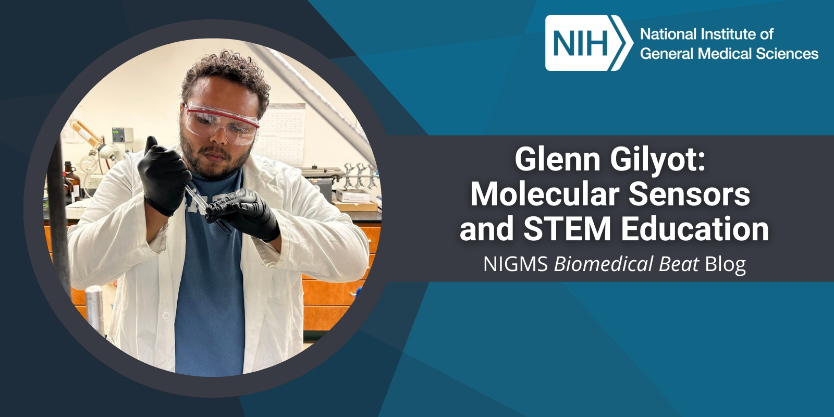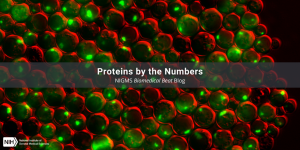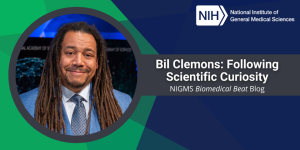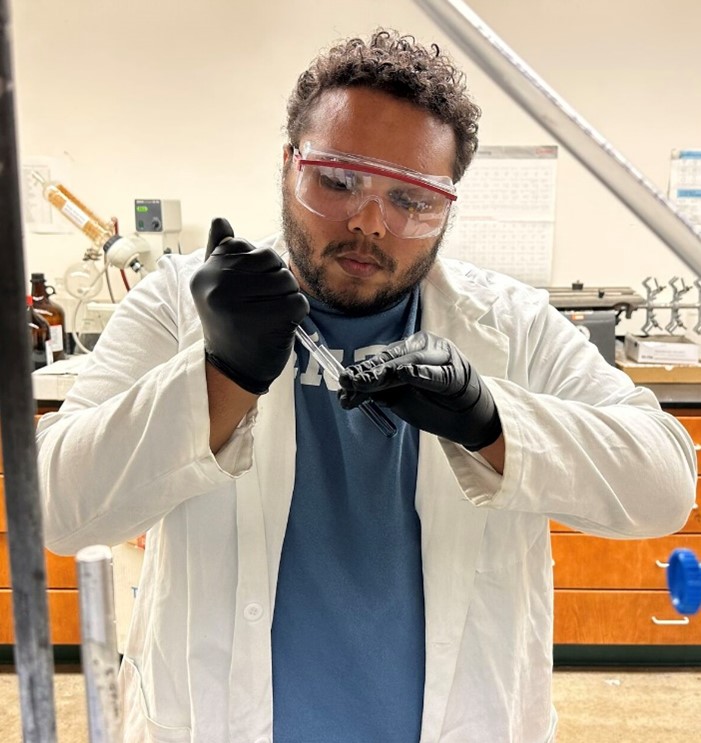
Glenn Gilyot, Ph.D., an assistant professor of chemistry at Hampton-Sydney College in Virginia, studies how to use fluorescent sensors to detect certain disease biomarkers in the body. He credits two NIGMS training programs that he participated in as an undergraduate and graduate student with helping him launch a successful career in research. Outside the lab, Dr. Gilyot is passionate about science outreach and encouraging future researchers to follow their curiosities.
An Early Introduction to Chemistry
Working in chemistry runs in Dr. Gilyot’s family: His grandfather was a pharmacist at a small pharmacy in New Orleans, Louisiana, and his father was a criminalist for the New Orleans Police Department. “When I was a kid, I’d visit both my grandfather and father at work. My grandfather would tell me about the medicines he had in the store and explain what they did in the body. My dad would show me the instruments, such as a mass spectrometer that helped him find out the chemical composition of samples from crime scenes,” says Dr. Gilyot.
NIGMS Training Along the Way
Through these visits, Dr. Gilyot developed a love for chemistry that he pursued in college. He entered Xavier University of Louisiana in New Orleans as a prepharmacy major, which involved both chemistry and biology classes, but ultimately switched to focus solely on chemistry. As a sophomore, he joined the lab of Candace Lawrence, Ph.D., who suggested he apply to Xavier University’s chapter of the Research Training Initiative for Student Enhancement (RISE) program, which provided him with funding to continue doing research in her lab and much more. “RISE was super beneficial. The program coordinator provided us with all the information we needed about grad school, prep courses for standardized tests, and seminars that helped us hone our science communication skills,” says Dr. Gilyot. “Looking back, I realize that RISE gave me an introduction to what grad school would be like, and I’m really grateful for that.”
With the encouragement of Dr. Lawrence and his RISE mentors, Dr. Gilyot entered a Ph.D. program at the University of Missouri (Mizzou) in Columbia. He was simultaneously accepted to Mizzou and their chapter of the Initiative for Maximizing Student Development (IMSD) program, which helped make the decision to go there an easy one. “IMSD funding allowed me to skip the teaching assistant requirement that Mizzou grad students have so that I could get a head start on my research project,” he says. IMSD eased the transition into grad school and created a tight-knit community through events like journal club, where students took turns presenting their summary of a recently published paper. Dr. Gilyot credits the IMSD journal club with helping him learn how to effectively read a journal article, communicate the results to peers, and be comfortable with answering questions—all skills that great scientists need.
For his graduate research, Dr. Gilyot worked in the lab of Timothy Glass, Ph.D. He studied synthetic molecules that could function as sensors in the blood, including fluorescent sensors to monitor blood pH—how acidic or basic the blood is. The lab team worked on developing a wearable device to detect the fluorescent signals that these molecules emit when the pH level changes. Devices like these could be helpful for patients with certain diseases, such as chronic obstructive pulmonary disease (COPD), where blood can shift outside the normal pH range. Because this pH shift can be life threatening, being able to monitor blood pH at home could make managing diseases easier for patients and the clinicians treating them.
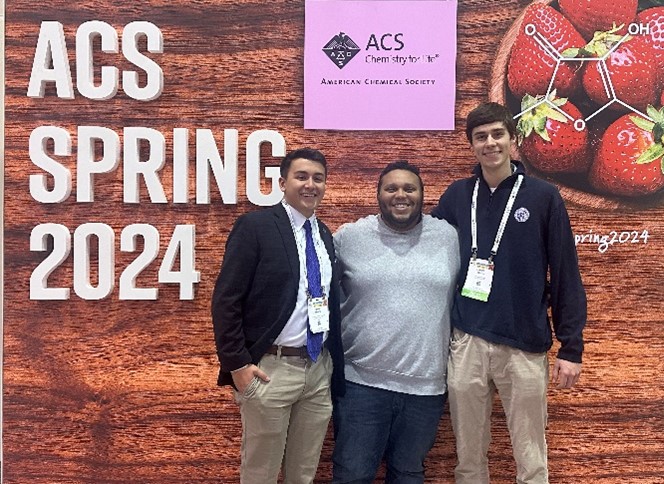
Dr. Gilyot joined the faculty at Hampden-Sydney College in 2023 where he continues to work with fluorescent sensors for monitoring the body for signs of disease, including specific molecules overproduced by some cancers, like liver cancer. These molecules indicate active disease, so clinical labs could use technology like Dr. Gilyot’s sensors to test for these molecules in the blood of patients undergoing treatment for liver cancer to gauge how their bodies are responding.
STEM Cubs
Dr. Gilyot is proud of the work he’s doing both inside and outside the lab. “Outreach is very important to me—showing students of all backgrounds that they can exist in science is something I’m very passionate about,” he says. During grad school, Dr. Gilyot earned a certificate in science outreach and even took classes in education to master the skills he needed to be a science communicator. He joined an outreach program called STEM Cubs, which invites local students in kindergarten through grade 5 onto the Mizzou campus to participate in hands-on science demonstrations. Their goal is to introduce all kids to science so they can start building a passion for it and see themselves working in the field.
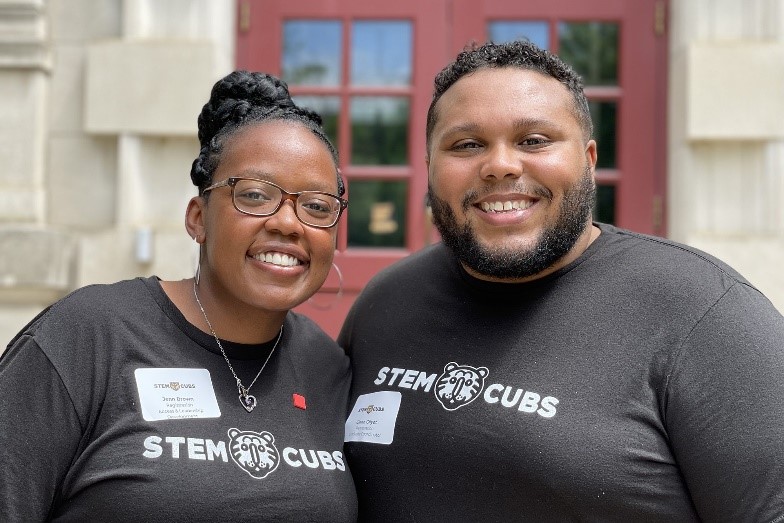
During his time with STEM Cubs, Dr. Gilyot noticed an opportunity to widen the group’s impact and started STEM Cubs: Middle Connections, a similar outreach program for local middle schoolers. By expanding STEM Cubs’ engagement beyond elementary school, the leaders could build more advanced lessons, such as how to design moon landers with the help of the Mizzou Space Program Club, or how to do forensic science techniques like fingerprinting.
“I’m a little sad that I’m not a part of STEM Cubs anymore,” said Dr. Gilyot. “I truly love that program. We’ve seen a lot of success, and I’m so proud of it.” Now that he’s settled into his position at Hampden-Sydney College, Dr. Gilyot is working with other professors at the college to start a local outreach program and bring his enthusiasm for science education to a new community.
Dr. Gilyot was supported by the RISE program at Xavier University through NIGMS grant R25GM060926 and by the IMSD program at Mizzou through NIGMS grant R25GM56901, which has shifted to grant T32GM135744.


